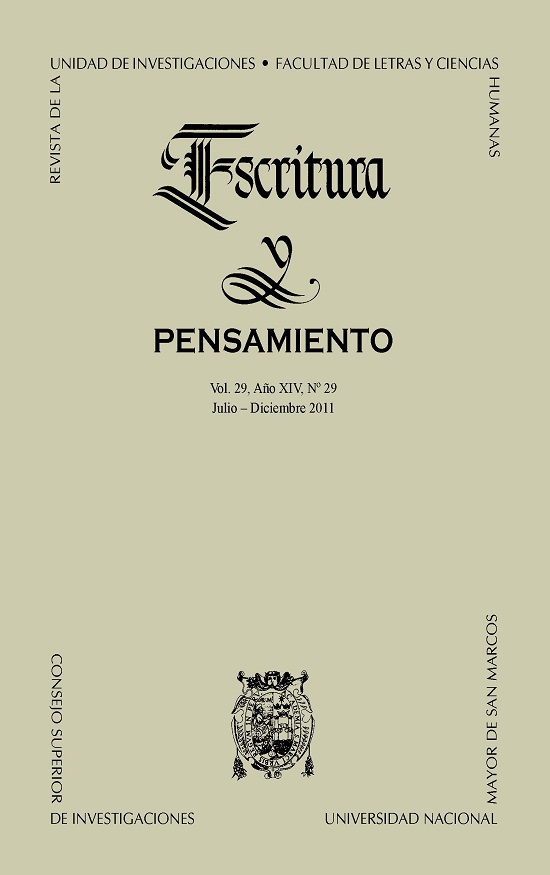AS YOU HAVE ESTABLISHED. SUBJECTION, BREAK UP AND DESOLATION IN THREE POEMS OF MARIA EMILIA CORNEJO
DOI:
https://doi.org/10.15381/escrypensam.v14i29.7981Keywords:
Subjection, break up, desolation, body, polyphony, passion states.Abstract
The analysis of this article focuses on the discursive analysis of three poems byMaria Emilia Cornejo: “Soy la muchacha mala de la historia” (“I am the bad girlof the story”), “Como tú lo estableciste” (“As you have established”) and “Tímiday avergonzada” (“Shy and embarrassed”) which appear in the fifth section of thebook En la mitad del camino recorrido (1989) (In the middle of the path). In each ofthe poems we can identify three passion states (subjection, break up and desolation),which within this representation, represent a critique against the dialogic malesignificance, common to this phallogocentric cultural system. What we intend toestablish is a hermeneutic structure that contributes to the recognition of the workof Maria Emilia Cornejo, since the secondary literature has been characterized, inthe majority of cases, for discussing issues related to authorship. This research isestablished as a non-sociological literary study. That is why the problem of authorshipbecomes irrelevant for purposes of our research.Downloads
Published
Issue
Section
License
AUTHORS RETAIN THEIR RIGHTS:
a. The authors retain their trademark and patent rights, and also over any process or procedure described in the article.
b. The authors retain the right to share, copy, distribute, execute and publicly communicate the article published in the Escritura y Pensamiento (for example, place it in an institutional repository or publish as part a book), with acknowledgment of its initial publication by Escritura y Pensamiento.
c. Authors retain the right to make a subsequent publication of their work, to use the article or any part of it (for example: a compilation of their work, lecture notes, thesis, or for a book), provided that they indicate the source of publication (authors of the work, journal, volume, number and date).





